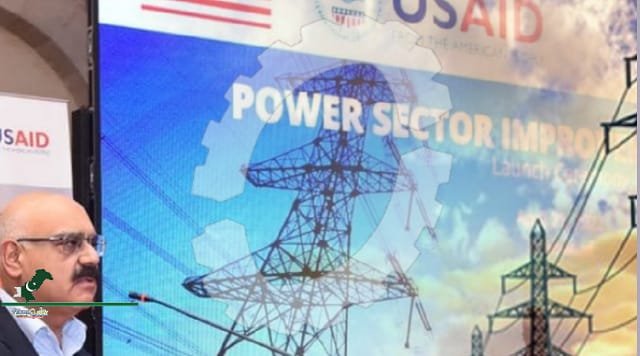The United States government, through the United States Agency for International Development (USAID), is partnering with the Pakistani government to launch a $23.5 million, four-year power sector improvement project to address climate change and increase the share of green energy in Pakistan’s energy mix.

Through technical assistance to the government and private sector, the project will also improve the management and operations of power transmission and distribution systems, increasing the financial viability, reliability, and affordability of Pakistan’s power system.
“The United States looks forward to advancing our partnership with Pakistan to build a clean, efficient, and reliable electricity generation sector, laying a foundation for sustainable and inclusive growth,” said USAID Mission Director Julie A. Koenen at the launch ceremony.
The federal government has also committed to expediting infrastructure upgrades at the national grid side so that 300 MW of additional power could benefit Karachi in 2021, supplemented by a further 400 MW in 2022 and 800 MW in 2023.
In this regard, the power utility has already sought necessary regulatory and governmental approvals, and following their timely receipt, K-Electric will be in a position of materializing the large-scale power projects that would move Karachi into a power surplus position.
“Through this new initiative, USAID will partner with the Government of Pakistan to support the transition to a truly competitive wholesale power market. This will increase private sector participation in an open and transparent manner and support our shared energy reform goals,” she added.
Shah Jahan Mirza, Managing Director of the Private Power Infrastructure Board, praised USAID for its strong partnership, innovation, and sustained cooperation in supporting Pakistan’s transition to clean energy and said he looks forward to continuing the partnership to improve Pakistan’s power sector performance.
Over the last 75 years, the U.S.-Pakistan partnership has improved Pakistani lives by building dams and transmission lines, responding to humanitarian emergencies, and combatting shared challenges like the COVID-19 pandemic, climate change, and water vulnerabilities.
Source: This news is originally published by propakistani
